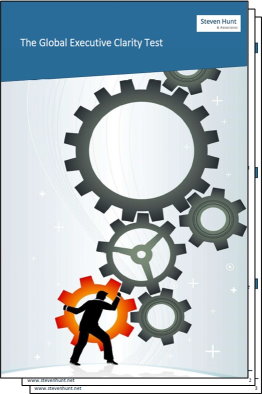We can control the feedback process up to the point where we ask for opinions. Beyond it we can’t. We’re vulnerable. Taking the first step means exposing yourself to the risk – a risk you can’t control – that you’ll get negative feedback.
A surprisingly high percentage of executives don’t like that. Their egos are too fragile. They spend the monthly Board meeting or team meetings dodging bullets, putting on a good show and exuding (false) strength.
Paradoxically, I find that once people understand the basic psychology behind vulnerability and its associated emotions, they can deal with it better and are more willing to accept the risk.
Vulnerability is a source of personal growth
In essence, it helps to think of being vulnerable as an early warning signal. It’s your body telling you that you’re on the boundary of your personal comfort zone.
There’s a choice: you can move back into the safety and comfort of what is known. Alternatively, you can push on through the boundary.
Growth comes when we extend our boundaries to new experiences and new situations.
A simple example, the first time I got feedback as a coach, it took days to process the comments. I remember being uncomfortable with the comments from one manager who I respected a lot at the time. His feedback was neutral; I was disappointed that his comments weren’t positive.
Now, after getting feedback thousands of times, it’s no longer a new experience. I’m open to the content and never worry about the person. It’s a process that’s well within my comfort zone.
Why do some managers avoid vulnerability and, in effect, choose slow growth?
There’s a simple answer and a deeper answer.
The simple answer is that people confuse being vulnerable with being weak or showing incompetence; it’s neither. The false logic behind these thoughts is: weakness and incompetence are for losers. Business is about being a winner, not a loser. I want to be a winner so I won’t show my vulnerability.
This false logic depends on a false interpretation of vulnerability. Vulnerability is about accepting or rejecting risk; not strengths nor competence.
The deeper answer is the emotions – sadness, anger, fear, embarrassment, and shame – that come with the manager’s vulnerability. It’s the emotions that surface and then block us.
A fragile ego is often a sign of historical fragility when you’ve been on the boundary of your personal comfort zone. You are emotional going back (or re-living) situations when you were at your limit and it didn’t feel good.
- Sadness. Imagine you’re at the edge of your personal comfort zone. Right there, at that point, something happens that makes you feel sad and you retreat into your comfort zone like a snail shrinking into its shell. If this process repeats itself again and again, you get conditioned to feeling sad every time you’re at the boundary of your comfort zone. It’s then only a short step to condition your behaviour into “avoidance”. The end result is you move away from vulnerability. With sadness, it can develop into a bad case of depression.
- Anger. It’s the same process with anger. Repeated failure to get out of you comfort zone can lead to rage. We’ve all seen it in managers that have a short fuse and lose their patience over nothing.
- Fear. Repeated failures to get out of you comfort zone can lead to panic, intense anxiety and managers who choke – they know what to do but can’t do it.
- Embarrassment or shame. In this context, I believe embarrassment and shame are similar. Repeated failures can lead to jealously and envy at an unhealthy level.
What to do about it? How to go for rapid growth…
When we know our emotional state, we stand a better chance of pushing through our personal boundaries, in other words, of moving into growth mode.
Finally, there’s a curious phenomenon when people see their executive or manager move into this unknown space. It makes them stronger and gives them more courage to face their own fears.
A global manager who gets outside his comfort zone and does so with a specific aim:
- sets a clear direction,
- communicates that he is decisive and confident.
So when have a global manager with ambitious aims who is willing to listen to all feedback, you will see an exponential rise in the confidence and belief of the people below them. And that can be the source of extraordinary results.
















